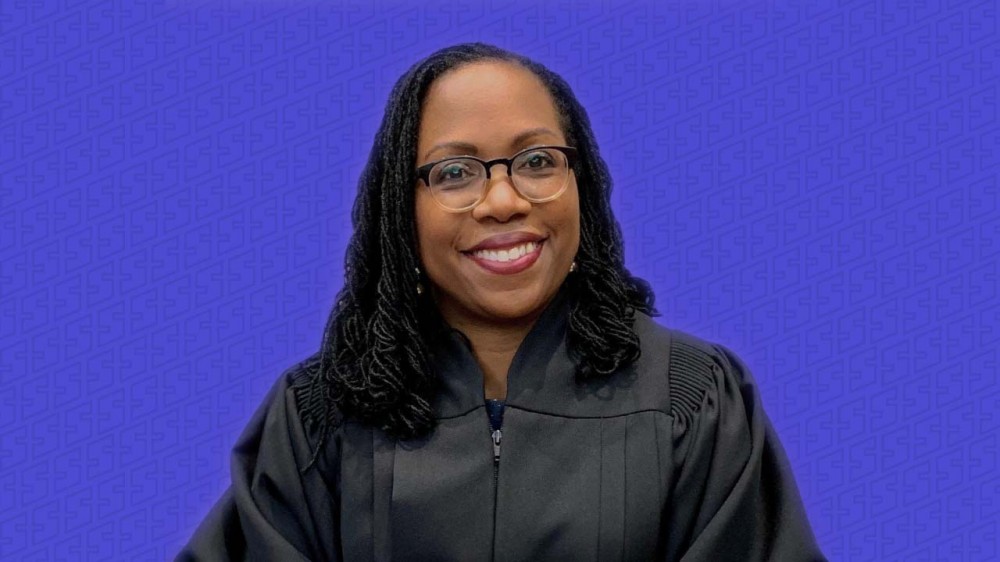Confirmation hearings for Supreme Court nominee Judge Ketanji Brown Jackson continue as Senator Mitch McConnell is undecided on how he will vote. Meanwhile, Rep Marsha Blackburn (R-Tenn) went on a rant that white privilege does not exist.

234 Views
Comments Off on Ketanji Brown Jackson’s Confirmation In Limbo As McConnell On The Fence And Marsha Blackburn Takes On ‘So-Called White Privilege’
White Privilege Isn’t Real?
Confirmation hearings for Kentanji Brown Jackson began on Monday. Republicans on the Senate Judiciary Committee were more than a little concerned about President Biden’s choice. They targeted the first female African-American nominee on issues of race and white privilege.
Sen. Marsha Blackburn (R-Tenn) took centerstage, lecturing Jackson that white privilege does not exist in America. This in spite of multiple studies that have found proof of white privilege. Of the 114 justices that have been confirmed to the Supreme Court, only two are Black and only one Latina.
“You serve on the board of a school that teaches, kindergartners, five-year-old children, that they can choose their gender and that teaches them about so-called white privilege,” Blackburn said.
Blackburn then continued to bash Jackson on critical race theory, the GOP’s newest weapon to rattle their base using fear-mongering. “You have praised the 1619 Project, which argues the U.S. is a fundamentally racist country, and you have made clear that you believe judges must consider critical race theory when deciding how to sentence criminal defendants,” she said. “Is it your personal hidden agenda to incorporate critical race theory into our legal system?”
While Blackburn appeared to be the only one who was the most vocal to touch on race yesterday, there was also Sen. Lindsey Graham (R-S.C.), who choose to spend a major portion of his opening statement lamenting about the Democrats’ treatment of Justice Brett Kavanaugh, who was ultimately confirmed though he was openly and credibly accused of sexual assault. Graham also echoed the GOP’s concern about Jackson’s skin color having more to do with her nomination rather than her credentials. “I want the Supreme Court to look more like the country, but I want it to operate within the confines of the Constitution,” he said.
Graham’s undermining of Judge Ketanji Jackson’s credentials belies her auspicious and diverse pedigree. The Washington Post made a note on Sunday that, if confirmed, Jackson would be the only active Supreme Court justice to have attended an Ivy League law school, clerked for a Supreme Court justice, served as a public defender, served on the sentencing commission, served as a U.S. District Court judge, and served as a U.S. Court of Appeals judge.
Ketanji has proved herself to be more than qualified and while Mitch McConnell claimed that he wanted the Supreme Court to look more like the country, Marsha Blackburn’s and the GOP who have continuously discredited Kentaji based on her skin color and her qualifications say otherwise.
McConnell: Undecided
Republican Senate leader Mitch McConnell stated this past Sunday that he hasn’t decided on if he will vote to confirm President Biden’s nominee, Judge Ketanji Brown Jackson, to the Supreme Court. McConnell stated that he was troubled by her refusal to object to expanding the nine-justice court.
McConnell (R-Ky.) said he met with Jackson in his Capitol Hill office last week and asked if she’d oppose expanding the court. “She wouldn’t do that. So, in the meantime, the committee will ask her all the tough questions. I haven’t made a final decision as to how I’m going to vote,” McConnell said on CBS News’ “Face the Nation.”
“I’m going to listen to the evidence, I’m going to listen to the hearings, and by the way she’ll be treated much better than Democrats have typically treated Republican nominees like Clarence Thomas and Brett Kavanaugh,” he then added on. “It’ll be a respectful, deep dive into her record which I think is entirely appropriate for a lifetime appointment.”
The Republican leader then made note on how previous Justices Ruth Bader Ginsburg and Stephen Breyer, whom Jackson would replace if she is confirmed, have objected to packing the court as some Democrats have suggested.
“Typically, these Supreme Court nominees of both parties have never answered any of the questions. What they typically say is that, ‘Something might come before me and I don’t want to prejudge how I might actually vote,’” explained McConnell, who had voted against Jackson’s nomination to the DC Circuit Court of Appeals in June 2021.
Jackson’s confirmation hearing in front of the Senate Judiciary Committee continues through Thursday.
Tough Questioning
Hearings for the Supreme Court nomination of Judge Ketanji Brown Jackson began on March 21.
As Judge Brown has been confirmed by the Senate three times; Democrats won’t be relying on Republican buy-in to complete her journey to the Supreme Court, as they only need a simple majority to confirm her. If Democrats are unified in this 50-50 Senate, Vice President Kamala Harris could be the vote to break the tie if need be.
Harvard Connections Questioned
In her upcoming Senate confirmation hearing, Supreme Court nominee Ketanji Brown Jackson may be asked if she will recuse herself from one of the first major cases she would be hearing as a justice – a challenge to Harvard University’s use of race as a factor in undergraduate admissions.
Jackson, who is an alumnus of Harvard University and Harvard Law School, is currently sitting on the university’s Board of Overseers whose role is to “provide counsel to the University’s leadership on priorities, plans, and strategic initiatives,” according to its website.
This fall, the justices are expected to hear a challenge to the school’s admissions policy brought by a group of Asian-American students who alleged they were illegally targeted and rejected at a disproportionately higher rate because of their race. Decisions regarding this case could determine the fate of affirmative action policies nationwide.
History Set In Motion
On Friday, February 25, 2022, in the midst of worldwide attention on the upheaval in the Ukraine, President Joe Biden nominated Ketanji Brown Jackson to make history as the first Black woman to sit on the highest court in the nation.
As he introduced Jackson to the White House, he stated, “Today, as we watch freedom and liberty under attack abroad, I’m here to fulfill my responsibilities under the Constitution, to preserve freedom and liberty here in the United States of America. For too long, our government, our courts haven’t looked like America. I believe it’s time that we have a court that reflects the full talents and greatness of our nation with a nominee of extraordinary qualifications, and that we inspire all young people to believe that they can one day serve their country at the highest level.”
51-year-old Kentanji Jackson currently sits on DC’s federal court of appeals, and was considered the front-runner for the vacant spot since the moment Justice Stephen Breyer announced his retirement.
Republicans and White Supremacy vs Kentanji Brown Jackson
When she was announced, Republican Senators immediately went on the attack on Ketanji Brown Jackson, and portrayed her as a pawn of the left.
While Democrats praised the qualifications of Biden’s choice, Republicans sought to criticize her educational background, record on crime and the support she holds from left-wing groups. Sen. Lindsey Graham of South Carolina, who ironically voted for Jackson to serve as a judge on the US Court of Appeals for the District of Columbia Circuit eight months ago, appeared to be against her nomination, saying in a tweet that “the radical Left has won President Biden over yet again.”



